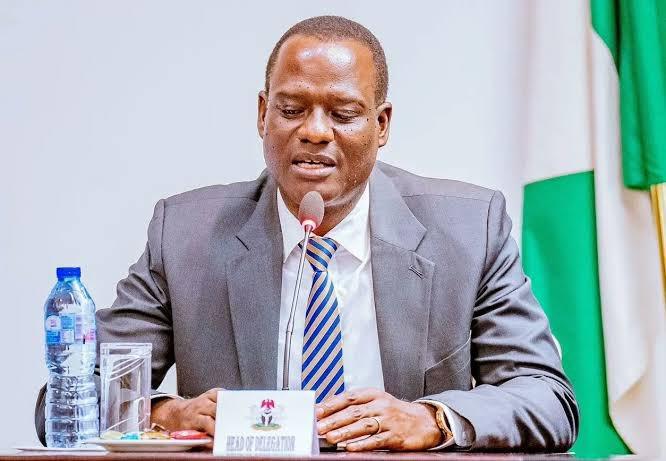The FG has granted approval for the distribution of one million science textbooks intended for secondary schools.
On Wednesday, the Federal Executive Council gave the green light for the printing of one million science textbooks to be distributed to every public secondary school across the country.
The Minister of State for Petroleum Resources (Gas), Ekperikpe Ekpo, informed reporters that the initiative aims to address gaps in essential subjects including physics, chemistry, biology, mathematics, and computer science.
This came after a memo was presented by the Minister of State for Petroleum Resources, Heineken Lokpobiri, on behalf of the Petroleum Technology Development Fund.
He clarified that the initiative aims to close the divide, empowering Nigeria to align its engineering and technology advancements with those of the global community.
He said, “We brought a memo on behalf of the PTDF that had initiated a program called the PTDF stem fund.
“Some time ago, the PTDF, which is the creation of law, you know, with the mandate to build the capacity, of Nigerians in the oil and gas industry came up with a program called PTDF Science, Technology, Engineering and Mathematics Programme.
“They sought to obtain presidential approval. And today, we brought a memo to the council to be able to print 1 million science textbooks.
“The science courses that were identified that Nigerians have deficiency, physics, chemistry, biology, mathematics, computer science.”
Lokpobiri said, “This program is meant to print 1 million science textbooks that will be distributed to all the local government, 74 local government areas in the country, and also to support the 104 unity schools that we have in the country, and then 122 special schools, that we have in the country.
“This memo was approved by Council. Essentially, this is a support at the secondary school level. To catch up with the rest of the world in terms of technological and engineering development, we need to lay a very solid foundation.
“Some time ago, we found that we are lagging, and so we decided that look, we are going to build both physical and digital libraries.”
The FG has granted approval for the distribution of one million science textbooks intended for secondary schools.
On Wednesday, the Federal Executive Council gave the green light for the printing of one million science textbooks to be distributed to every public secondary school across the country.
The Minister of State for Petroleum Resources (Gas), Ekperikpe Ekpo, informed reporters that the initiative aims to address gaps in essential subjects including physics, chemistry, biology, mathematics, and computer science.
This came after a memo was presented by the Minister of State for Petroleum Resources, Heineken Lokpobiri, on behalf of the Petroleum Technology Development Fund.
He clarified that the initiative aims to close the divide, empowering Nigeria to align its engineering and technology advancements with those of the global community.
He said, “We brought a memo on behalf of the PTDF that had initiated a program called the PTDF stem fund.
“Some time ago, the PTDF, which is the creation of law, you know, with the mandate to build the capacity, of Nigerians in the oil and gas industry came up with a program called PTDF Science, Technology, Engineering and Mathematics Programme.
“They sought to obtain presidential approval. And today, we brought a memo to the council to be able to print 1 million science textbooks.
“The science courses that were identified that Nigerians have deficiency, physics, chemistry, biology, mathematics, computer science.”
Lokpobiri said, “This program is meant to print 1 million science textbooks that will be distributed to all the local government, 74 local government areas in the country, and also to support the 104 unity schools that we have in the country, and then 122 special schools, that we have in the country.
“This memo was approved by Council. Essentially, this is a support at the secondary school level. To catch up with the rest of the world in terms of technological and engineering development, we need to lay a very solid foundation.
“Some time ago, we found that we are lagging, and so we decided that look, we are going to build both physical and digital libraries.”










